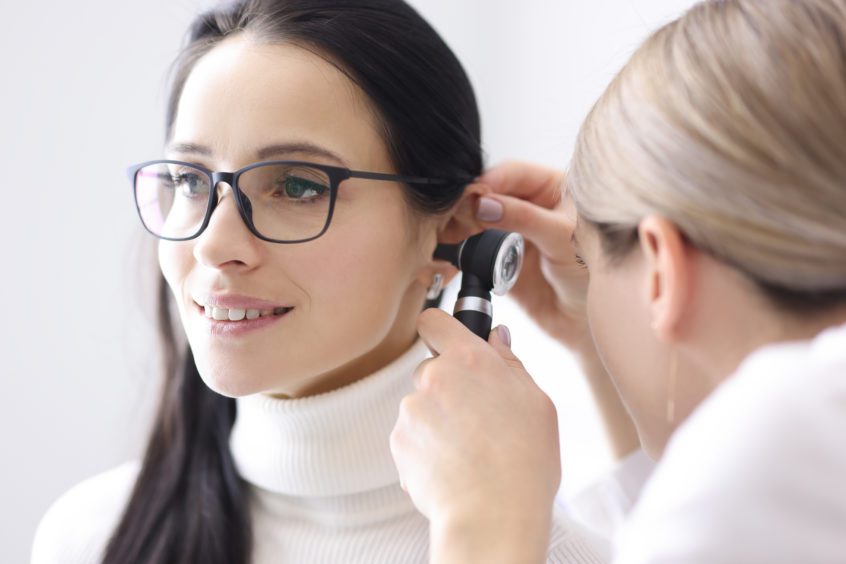It seems that hearing loss would be a straightforward topic, but it turns out there are a lot of myths and misinformation surrounding it. Let’s address a few here based on answers from the Better Hearing Institute at betterhearing.org.
Myth: Hearing loss affects only older adults.
FALSE: Hearing loss does not discriminate. About two-thirds of all hearing loss is in people under 65 years of age, according to the Healthy Hearing Foundation. Even more alarming is that today one in five teenagers (ages 12 – 19) has hearing loss in one or both ears from listening to music too loud, illness, medications or genetics. The World Health Organization has warned that 1.1 billion teenagers and young adults are at risk of hearing loss “due to the unsafe use of personal audio devices, including smartphones, and exposure to damaging levels of sound at noisy entertainment venues such as nightclubs, bars, and sporting events.”
Myth: I don’t need hearing aids. My hearing is mostly fine.
FALSE: When you have a hearing loss in some frequencies and not others, it is easier to dismiss it as unimportant. However, even a mild hearing loss can adversely affect your cognitive capabilities, work, home, and social life. Fortunately, the brain’s neuroplasticity means that treating hearing loss allows the brain to relearn how to hear. Proper hearing aid use correlates with improved outlook, mood, mobility, independence, communication, and social interaction.
Myth: Listening to music can’t hurt my hearing.
FALSE: In one of the largest studies ever performed on hearing disorders affiliated with musicians, researchers discovered that musicians are 57% more likely to suffer from tinnitus—consistent ringing in the ears—as a result of their job, according to the American Association of Retired Persons (AARP). If you’re a musician, or if you participate in live events, safeguard your ears. Musicians can benefit from professional earplugs that provide safe listening and preserve sound quality.
Myth: People with hearing loss usually get hearing aids right away.
FALSE: Statistics show that most people struggle with their hearing for five to seven years before seeking help or getting hearing aids. Why do people wait so long? There are many reasons, but hearing loss is so gradual that it’s hard to notice. Hearing loss frequently occurs for higher pitched sounds, which means some lower pitched sounds and voices may be heard normally, creating the perception of normal hearing. Many people assume hearing loss is age-related and it’s either something to be accepted or something to be ashamed of. Annual hearing testing may help those with hearing loss get diagnosed quicker, receive treatment, and benefit from hearing aids that come in a number of different colors and styles.
Myth: Hearing loss only affects my ears.
FALSE: Untreated hearing loss doesn’t just affect your hearing or your ears. Numerous studies have shown it increases the risk of cognitive decline, dementia, falls, social isolation, and depression. It’s theorized that the “cognitive load” on the brain may take away resources the brain uses for other functions, such as short-term memory, and affects our ability to perceive spatial awareness. Researchers say treating hearing loss with hearing aids can alleviate symptoms of these conditions.
When it comes to your hearing, don’t assume anything. Hearing loss tends to be an “invisible” condition that the individual may not notice themselves. However, family and friends may notice the problem and may ask you to get your hearing checked.
If you notice you are having problems hearing, especially in higher frequencies, or you suspect you may have a hearing loss, see a doctoral-level audiologist for a comprehensive hearing evaluation. An evaluation is necessary in order to determine the type of hearing loss, frequency and range, and to prescribe the best hearing aids for your individual problem.
Schedule a comprehensive hearing evaluation with a doctoral-level audiologist.



